by Charles Wanga
![]() Wearing a surgical apron, mask, and gloves, nurse Illuminata Sanga speaks softly to a young man lying on an examining table. She is one of 200 nurses providing safe medical circumcision in the southern highlands of Tanzania in an effort to prevent the spread of HIV/AIDS.
Wearing a surgical apron, mask, and gloves, nurse Illuminata Sanga speaks softly to a young man lying on an examining table. She is one of 200 nurses providing safe medical circumcision in the southern highlands of Tanzania in an effort to prevent the spread of HIV/AIDS.
Here in the town of Iringa, located in a region with three times the national average of people living with HIV, Sanga has participated in thousands of these procedures. Counseling the young men, prepping, cutting, and sewing—she has done it all. But she treats each patient with the dignity he deserves, offering words of comfort before she administers a local anesthetic.
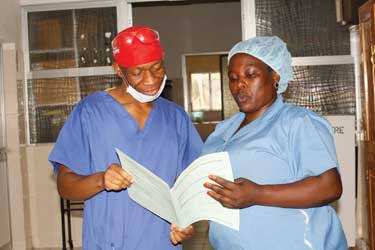
circumcisions on young adult men. Medical male circumcision has been shown to reduce by 60 percent heterosexual men¹s risk of acquiring HIV.
Voluntary medical male circumcision (or VMMC) has been shown to reduce heterosexual men’s risk of acquiring HIV by 60 percent. It has become an important component of an HIV prevention strategy that includes condoms, limiting sexual partners, and abstinence.
With doctors in short supply in many areas of Africa, more and more nurses are taking an active role in HIV/AIDS prevention campaigns, providing education, counseling and testing and, as the World Health Organization recommends, VMMC procedures.
“Over 60 percent of the providers in Iringa are nurses. They are taking the lead in all steps of the voluntary medical male circumcision procedure,” said Dr. Augustino Hellar, VMMC Program Advisor at Jhpiego. “This is a strong example of the WHO’s ‘task shifting’ approach.”
Helping build capacity of healthcare workers to provide and expand access to VMMC is just one of the health areas in which Jhpiego has partnered with Tanzania to provide quality health care for its people. Jhpiego also works in maternal and newborn health, malaria prevention and treatment, infection prevention, and quality assurance.
Sanga, 36, received her training in circumcision through a Jhpiego-supported program funded by the U.S. President’s Emergency Plan for AIDS Relief through the U.S. Agency for International Development’s global, flagship Maternal and Child Health Integrated Program.
As a senior operating room nurse at Iringa Regional Hospital, she was well-prepared for this new challenge. Her attention to detail and organizational skills helped make her proficient in minor surgery.
“Nurse Sanga has been a champion of the program in the region. Being one of the first providers to be trained in the VMMC program, she has proven to be a remarkable manager, a very proficient provider, a trainer and also a mentor for newly trained providers,” said Dr. Hellar.
In the past two and a half years, nearly 90,000 clients have received services in Iringa. “I believe I am making a significant contribution,” says Sanga.
Learn more about Jhpiego’s international nursing efforts at www.jhpiego.org.
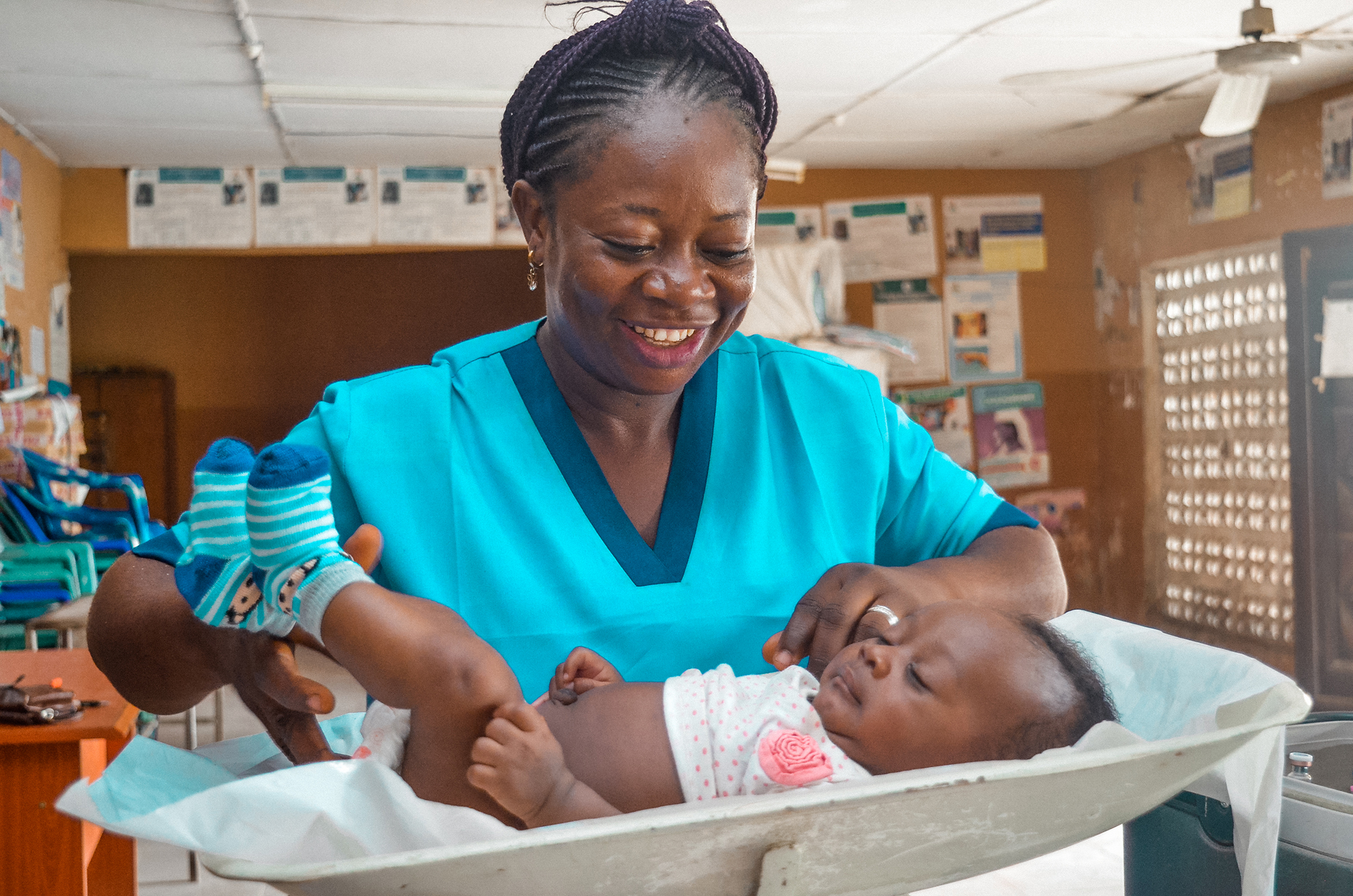 Nurse Edith Brings Primary Health Care to Everyone in Rural Nigeria
Nurse Edith Brings Primary Health Care to Everyone in Rural Nigeria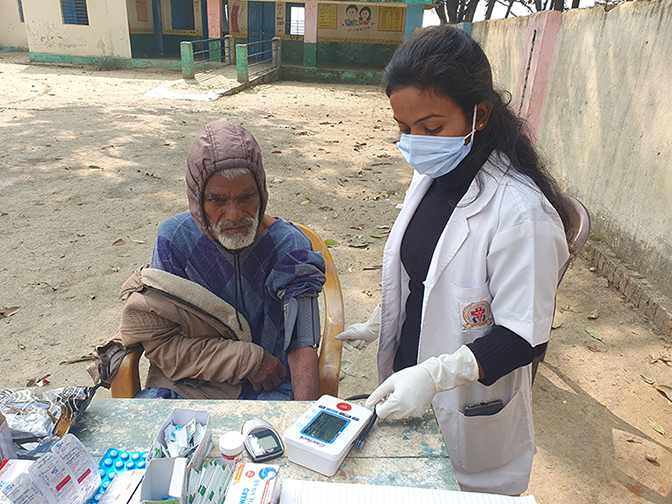 In India, Breast Health Via Wellness Centers
In India, Breast Health Via Wellness Centers 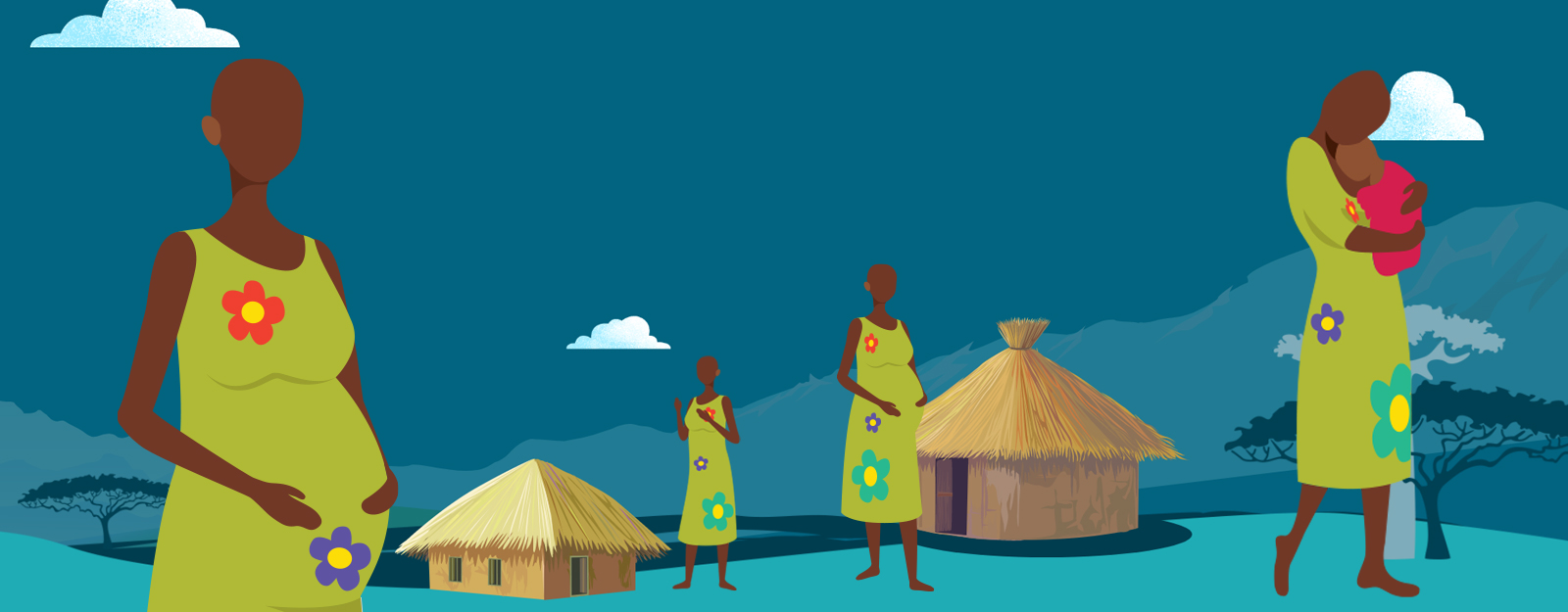 Sharing Real-World Maternal Trauma
Sharing Real-World Maternal Trauma 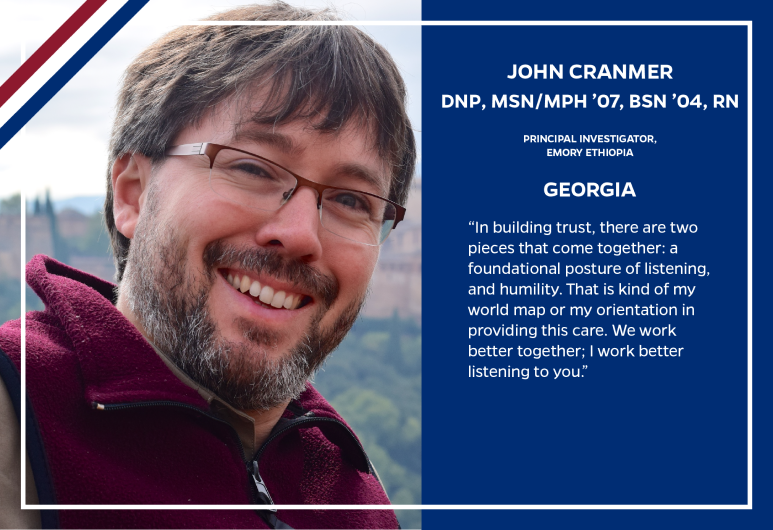 ‘Collaborative Practice’
‘Collaborative Practice’ Q&A with Yen Nguyen, first DNP/PhD Graduate
Q&A with Yen Nguyen, first DNP/PhD Graduate







